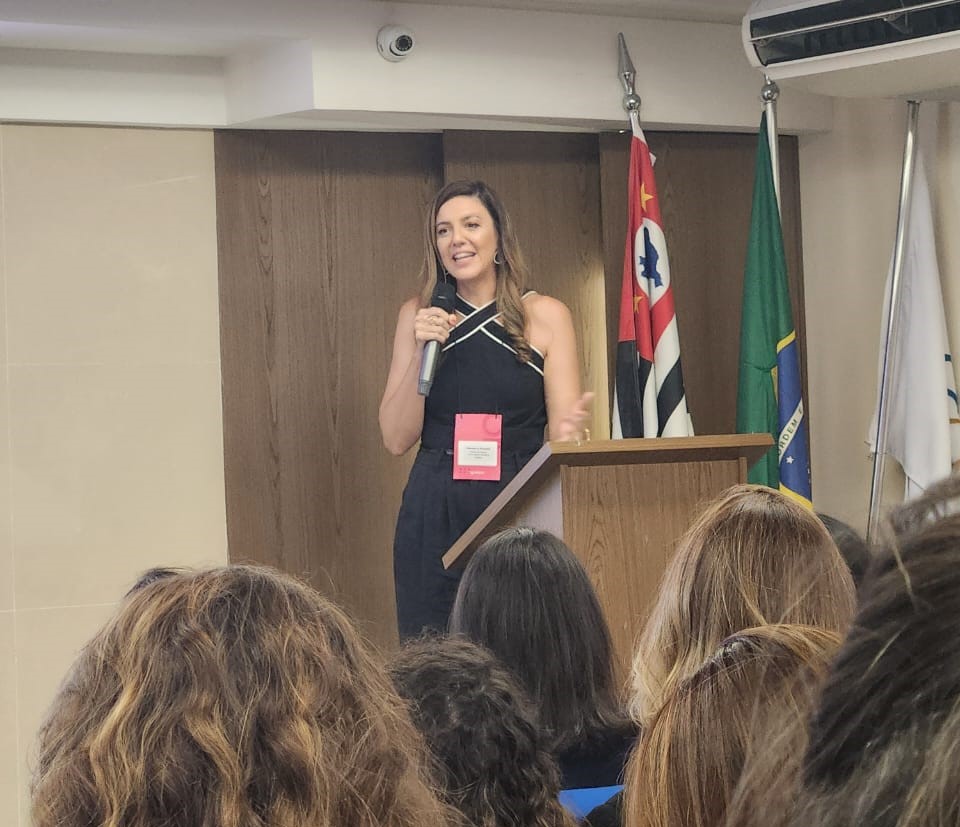We know that balancing the cost and value of corporate health plans is currently one of the top priorities...
Horiens attends the launch of the book Speak Up, Woman
DATE: 03/11/2024
The week of International Women’s Day was celebrated in a special way in the insurance sector. On Thursday, March 7, the launch of the book Speak Up, Wman (Fala Mulher) brought together around 200 people in São Paulo, at the headquarters of the National Insurance School (ENS).
Fala Mulher is a publication of the Association of Women in the Insurance Market (Sou Segura), a collection of the most read articles from the column that gives the book its name, published on the association’s website. In all, the book brings together 38 articles that capture the experience, outlook and voice of women in the insurance sector.
“We are very proud to highlight the voices and strength of women amid the challenges that still exist in achieving gender equality,” said Liliana Caldeira, president of Sou Segura.
The Speak Up, Woman column started in 2004 and strengthened over 20 years, step by step. It is the result of a powerful project led by Simone Ramos, now Director of Institutional Program Development. “If in the beginning we had few articles, today the courage to speak up and take a stance has propelled us even more,” she says. About the book, Simone says: “The publication invites us to turn learning into practice and to change perspectives in an incomparable way, which elevates this inspiring work to the discovery of new paths.”
Women of Horiens
Horiens’ executives, Fernanda Antonelli, from the People, Communication and Marketing area, and Nathalia Oliveira, from Risks and Insurance for Agribusiness and Logistics, are co-authors of the book Speak Up, Woman, with a participation in the ‘Career’ chapter.
Fernanda is the author of the most-read text on the Sou Segura website on the subject of women’s careers. Her article ‘How about imagining the future to change the present?‘ introduces concepts and skills to deal with today’s challenges.
“Today, we have the freedom to be who we want to be and to make our voice heard in the world, including through our careers,” said Fernanda. “It’s also important to remember that our power doesn’t mean we have superpowers. We are human, not putting so much pressure on ourselves is a continuous learning process, especially for us women. Coping with everything at what cost?” she reflected during the launch event.

Fernanda Antonelli tells us more about her article
Nathalia, who wrote the article ‘Understanding the glass ceiling’, addressed the barriers faced by women who aspire to higher hierarchical positions. “It’s a great pleasure to be part of this project and to help give visibility to issues that still need to evolve. Despite the progress, women’s struggle continues,” she said.

Nathalia, who wrote the article ‘Understanding the glass ceiling’
Women on the market
According to the ENS survey, women represent 54.4% of the insurance market, but this presence becomes scarcer at high levels of leadership, with female representation of only 31%.
Women’s workload dedicated to caring for people and/or household chores is still one of the obstacles, among others, when it comes to gender equality in the labor market.
Data from the Brazilian Institute of Geography and Statistics (IBGE) released on Friday, March 8, 2024, show that Brazilian women spend almost twice as much time as men in these jobs, which ends up restricting women’s wider participation in the market.
Considering both working and domestic hours, the total working hours for women was 54.4 hours and for men 52.1 hours. The study’s breakdown by race reveals an even more complex situation for black and mixed-race women, who are more involved in unpaid domestic work than white women.
Another fact that highlights the discrepancies between the genders is that, although they are the majority of university graduates, women occupy positions that require lower qualifications and are paid around 70% of men’s salaries.
Despite the scarcer presence ina decision-making positions, we are gradually seeing positive changes. “We need to implement affirmative action and have objective targets for inclusion, monitoring the issue closely and correcting what is necessary,” concluded Liliana, from Sou Segura.



No comments